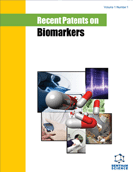Abstract
Background: Metastatic Renal Cell Carcinoma (mRCC) is a malignancy with a poor prognosis due to inefficacy of chemotherapy and to the efficacy of immunotherapy only in few patients. The availability of agents directly targeting tumorigenic and angiogenic pathways, as Vascular Endothelial Growth Factors (VEGF) inhibitors, has significantly improved the outcome of these patients. Aim of this work is to evaluate the possible prognostic and predictive role of patent biomarkers on mRCC. Methods: We have done a critical review based on Level of Evidence (LOE) analysis of recent publications indexed on PubMed from January 2011 up to August 2014. These studies have evaluated whether biomarkers can have a correlation with clinical outcomes in metastatic RCC patients treated with VEGF-targeted therapy. Results: We identified a total of 25 articles. On the basis of results of randomized controlled trials and prospective and retrospective observational studies, we tried to assess the predictive role of biomarkers. Six of these biomarkers (VEGF, interleukin (IL)-6, hepatocyte growth factor (HGF), osteopontin, IL-8 and sVEGFR-3) showed a potential predictive role. Moreover, VEGF-A, IL-6 and IL-8 seem to have prognostic value. Conclusion: Despite intensive efforts, there are no validated predictive or prognostic biomarkers currently in use in patients with mRCC. This literature up date is trying to highlight the biomarkers potentially useful to predict response to VEGF-targeted therapy and those with a prognostic value.
Keywords: Angiogenesis, HIF, kidney cancer, monoclonal antibodies, prognosis, therapy, VEGF.
 16
16

